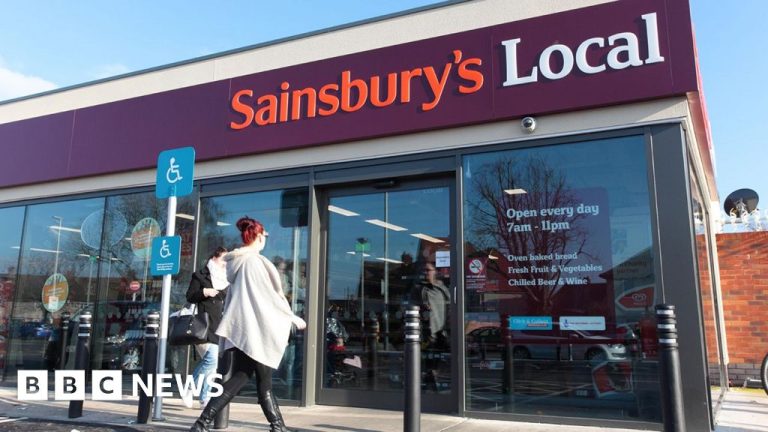Alamy
Sainsbury's has announced it will match the price of 200 Aldi products in its smaller stores, as it battles rivals to attract more customers to its convenience stores.
Shopping locally can be convenient, but people who rely on convenience stores may end up paying a lot more.
Campaigners have criticized retailers for not doing enough to narrow the price gap with big supermarkets, particularly during the cost of living crisis.
Latest research from the BBC suggests that a frozen pizza costs 26% more in a convenience store than in a mainline supermarket.
Sainsbury's is the first major supermarket to extend its Aldi price campaign to its convenience stores.
Sainsbury's will not reveal how much its new initiative will cost. Its Nectar loyalty pricing program will still only be available in supermarkets and not convenience stores.
Aldi is regularly voted for by consumer group Which? as the UK's cheapest supermarket. Sainsbury's, Tesco, Morrisons and Asda have all introduced schemes to match the prices of everyday essentials in their department stores.
In September, BBC Panorama discovered that dozens of Tesco products priced the same as Aldi's were not identical. For example, Tesco's chicken nuggets contained 39% chicken, compared to 60% at Aldi.
Aldi's growth has slowed this year as cost pressures eased for many shoppers.
“What we're seeing now is a growth in convenience,” said Ananda Roy of consumer analytics firm Circana.
Waitrose, Asda, Morrisons and M&S are all opening more of these stores.
Convenience comes at a price
But buyers pay extra for convenience.
According to a snapshot from Circana, based on an analysis of 29 everyday products, shoppers currently pay on average 10% more for the same item in convenience stores than in major supermarkets.
Some everyday objects were much higher. In September based on the average price per pack or unit:
Bread cost 21% more Packs of prepared rice cost 36% more Frozen pizza cost 26% more Ketchup cost 14% more
Consumer group Which? has long campaigned on the issue and recently discovered that making regular convenience store purchases over the course of a year could add an extra £800 to a grocery bill for a weekly basket of produce.
Mr Roy said that while convenience stores cost more to run and customers should expect to pay more for higher levels of service and convenience, retailers could do more to narrow the gap on basic food items purchased regularly.
“The challenge is to have more transparency on prices in convenience stores, especially where loyalty and promotion prices are not the same as those offered in other stores,” argues Mr. Roy.
Supermarkets came under scrutiny as inflation soared and some responded by adding cheaper own-brand products to their smaller stores.
Convenience is one of the few areas of retail that is seeing good growth. As supermarkets continue to compete fiercely for customers, Sainsbury's extension of Aldi's price match could prompt rivals to follow suit.

